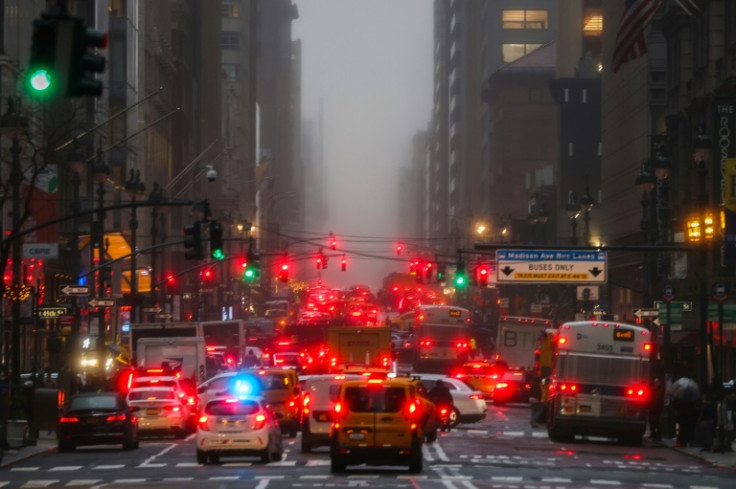New York City Congestion Toll OK'd For Part Of Manhattan

Traveling in New York is already costly, but it just got worse: transit authorities have approved a controversial $15 toll, set to take effect in mid-June, for motorists entering the busiest part of Manhattan.
The board of New York's Metropolitan Transportation Authority on Wednesday voted 11-1 to impose the toll, which is aimed at encouraging the use of public transport and alleviating traffic in midtown and lower Manhattan, thereby reducing pollution.
The fee will be a first in an American city, and is similar to existing schemes in London, Stockholm and Singapore. It must first gain federal approval, and systems for collecting the tolls must be put in place.
Passenger and small commercial vehicles entering Manhattan south of 60th Street from Queens, Brooklyn and neighboring New Jersey will pay $15 during the day and $3.75 at night -- on top of any bridge or tunnel fees they already incur.
Trucks and sightseeing buses will pay between $24 and $36 during the day, and less at night. Taxis will charge passengers $1.25 per trip into the zone, and rideshare apps such as Uber will be authorized to charge $2.50 per trip, the MTA says.
Only emergency vehicles, those carrying disabled passengers and specialized city vehicles will be exempt. Low-income drivers living in the congestion zone will be eligible for reduced fees.
MTA Chair and CEO Janno Lieber called the vote "one of the most significant the board has ever undertaken," and said in a statement: "The MTA is ready."
In preparation, service has been bolstered on 12 subway lines, bus networks have been redesigned, and commuter rail service from Long Island has been boosted, the transit authority said.
The more than $1 billion that the MTA hopes to raise from the new toll will go towards renovating subway stations to make them more accessible, modernizing subway signals and funding system expansions.
"One of the biggest goals of this is to finally attack congestion, but the other side of the equation is to invest more in transit," Lieber said.
But critics, especially already stressed-out commuters, have howled over the new toll, and several lawsuits are already under way.
In December 2017, authorities in Virginia imposed tolls on solo commuters using Interstate 66 at peak times to get to the capital Washington, but New York would be the first US city to levy a congestion toll.
© Copyright AFP 2024. All rights reserved.





















